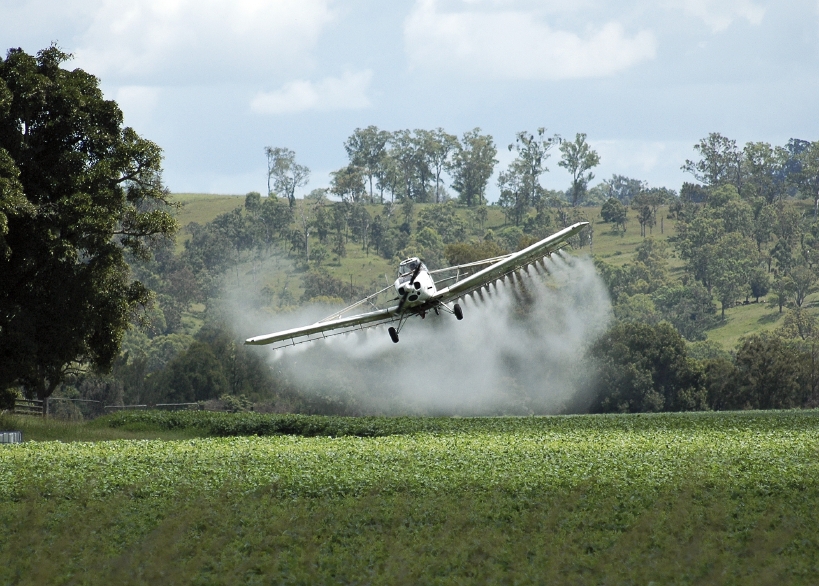Desiccating crops disperses toxic glyphosate—and we’re eating it

By vast
Published: December 6, 2018
Category: Glyphosate Controversy, The Organic & Non-GMO Report Newsletter
The herbicide glyphosate, classified by WHO as a probable human carcinogen, is showing up in alarming levels in commonly ingested foods. A lot of our exposure is due to desiccation of crops—a widespread farming practice using glyphosate spray to dry crops pre-harvest, so they can be harvested at a specified time. Nearly all conventional crops in the U.S, Canada and the UK are desiccated—and if the timing isn’t just right, the chemical gets into the plant itself.
For those with large farms—say, 30,000 acres—harvesting all crops at the same time is vital for efficiency. It also boosts the coffers of herbicide sellers. But what’s happening to the food supply?
Mike Shewchuk farms 15,000 acres in Saskatoon, Saskatchewan, and he uses the long-used practice of swathing to avoid desiccation. Swathers cut the crops, which are left to dry on the ground before combining. But most farmers choose to desiccate to speed up crop aging and control harvest time.
Global usage of glyphosate—3,200 tons per year in 1974—will probably reach 1 million tons by 2020. Usage has driven up the maximum residue limits (MRLs)—between 1993 and 2015, glyphosate MRL increased by 100 percent to 1,000 percent in the U.S., depending on the crop. Levels in oat-containing foods often exceed safe limits.
Glyphosate kills gut bacteria, leading to shifts in the microbiome triggering obesity, Alzheimer’s, or celiac disease. Since herbicides aren’t easily absorbed by the gut, they hang around longer to impact gut bacteria—poor absorption is one reason herbicides are seen as safe to ingest. The toxic additives in commercial herbicides are also not regulated.
Microbial ecologist Miranda Hart says measuring our exposure level to glyphosate—including from water, farms, and forests—is urgent. Evaluation of that risk to human and animal health needs to follow.
Source: Nautilis
To view full article, visit:
http://nautil.us/issue/66/clockwork/herbicide-is-whats-for-dinner








